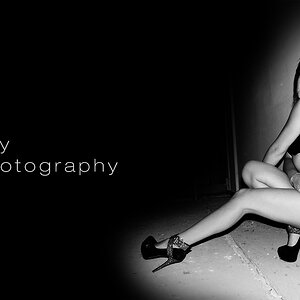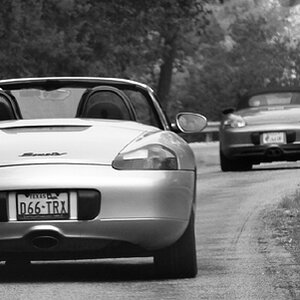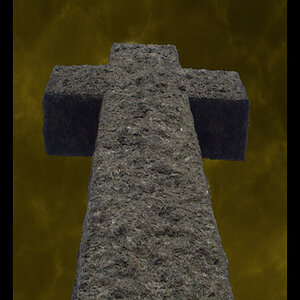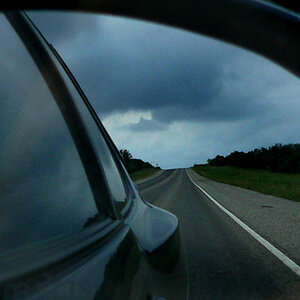fmw
No longer a newbie, moving up!
I didnt miss it - that part is just complete bullocks. The laws of optics dont care at all if you have a mirror box or not. The only place at which you can gain in size and weight in this respect is with wide angle lenses. Depending upon how well your sensor can handle steep angles of incidence.You missed the major advantage of the mirrorless which is smaller size and weight.
Otherwise mirrorless is smaller simply because the sensors are often smaller. And if they arent, as with the Sony FE cameras, you just have a poorly balanced system with little grip, and EVERY lens you have has to be bigger than their DSLR counterpart to compensate for the missing mirror box. Meaning your camera weights the same and your lens bag just got heavier.
That is a strange thing to say. My current camera has exactly the same size sensor as my DSLR and weighs less than half with or without a normal zoom lens attached. My telephoto zoom fits in my pants pocket. You are simply mistaken.
I didnt said retrofocus lenses are a disadvatage to mirrorless, I said mirrorless will have to use retrofocus wide angle lenses as well, because symmetric wide angle lenses quickly run out of possible maximum aperture and then you have to go for retrofocus anyway.[/quote]Using retrofocus lenses isn't a disadvantage because they are also used on DSLR's.
You suggested that an advantage of a mirrorless would be the use true wide angle lenses. While that is true, you are comparing DSLR's and mirrorless cameras. Since DSLR's don't and can't use them, it is a meaningless comparison.
Nothing wrong with disliking mirrorless cameras.
I never said anywhere I wouldnt like mirrorless ? I thought for a long time it will be the future. Well, I still think it will become really successful, very likely dominant, possibly even killing of SLRs in the end. But I dont think it will be for the reasons people think it will.
Your writing suggests you dislike mirrorless. I think mirrorless will kill DSLR's over time. I think the reason will be size and weight. That is what moved me.
I like the Fujifilm X and G systems because they are really well done, with good glas, and in 5-10 years the X system will very likely be as good as DSLRs in respect to lens choices (in fact it might be superior overall in that category, the average lens quality for Fujifilm X is very good), flash support, and overall performance - minus the fact it obviously will still only be APS-C.
I'm not sure it will be APS-C. I think technology will take us to even smaller sensors. We have some decent smaller ones as well as full frame in the Sony line right now.
Personally I think all Nikon has to do is allow EVF during lifeview, with all the possible features, and to allow to permanently lock the mirror up, which would be a requirement for certain wide angle lenses - then you can haven have 100% of the advantage of mirrorless on a DSLR but still keep the OVF for when you need its advantages.
Again, except for size and weight which is what mirrorless is all about, at least for me and many others.




![[No title]](/data/xfmg/thumbnail/30/30883-04222f7ae234efdf80dff6f96ddad16f.jpg?1619734495)
![[No title]](/data/xfmg/thumbnail/39/39511-592cbd68b1d797ffce7e41e4fbfed890.jpg?1619739066)

![[No title]](/data/xfmg/thumbnail/41/41756-e54235f9fba04c8380cd991845bb84b1.jpg?1619739881)





